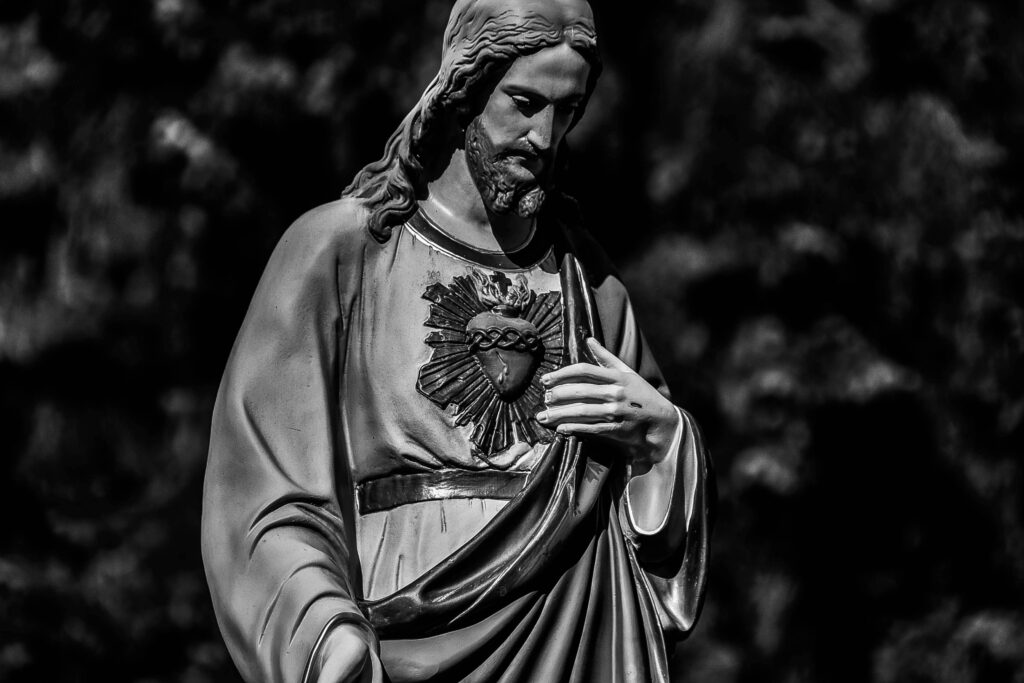The Heart
Pope Francis' New Encyclical: "Dilexit Nos"

Pope Francis has just published the encyclical Dilexit Nos dedicated to the Sacred Heart of Jesus. With this article, I want to encourage you to read it and also make a brief gloss of its first chapter entitled “The Importance of the Heart.”
In it, the Pope laments the little importance and the scant treatment that the heart has had in anthropology throughout the history of philosophy. This is something that we can easily verify by the superficiality and sentimentality with which this word is used, for example, when it is applied to magazines or gossip programs. Below, I briefly offer half a dozen tips that can help to understand a little better what the structure and the role of the heart is.
Feelings: A Classification
1. Corporeal Feelings
First, we look at corporeal feelings, which are rather sensations and states of the body. A headache or a general feeling of tiredness after having played sports or having slept badly. This is the minimum expression of what is called feelings and, as I say, more properly, they should be called sensations.
2. Psychic Feelings
The second type of feelings are those that could be called psychic. They are shocks that we experience based on how things or events affect us. For example, walking down a dark and lonely street, if I hear footsteps behind me, I feel afraid. Or if a driver honks at me and insults me, I feel angry. Depending on how things affect us, we experience one feeling or another. Sometimes they are very intense and brief, and are called passions; other times they are more moderate and long-lasting, and are called affects or feelings.
3. Rational Feelings
The third type of feelings in this “sentimental” could be called rational feelings. They are shocks that we experience because of the objective value that the object has in itself. They are not motivated by experiences outside of us, but rather are proposals of reality that we embrace, accept, and respond to affirmatively. Likewise, they are deeply intellectual and have a foundation in the objective value of what motivates them.
Some examples of these rational feelings include:
- Enthusiasm: When listening to a sublime piece of music, not only for the rhythm but also for the content and the lyrics.
- Joy: When we witness a noble action, such as a cleaning worker who finds a bag of money and returns it to the police.
- Gift of Tears: When faced with the misfortunes of others, such as the tragedy that occurred in Spain in the Mediterranean.
- Deep Contrition: The pain of love for sins, an appreciation of the gravity of sin and the feeling of pain.
- Artistic Genius and Intellectual Talent: The ability to create art or to understand things thoroughly, and the sensitivity to moral values.
- Happiness: Not just a thought that everything is fine, but a true, rational feeling based on reality.
- Personal Love: Loving another person as he or she deserves, recognizing the value of the highest object, which is the human being.
- The Heart: Center of the Person
Rational feelings unite sensation (the body) with reason (the spirit), the heart being the center of the person. It is not simply a corporeal dimension or a spiritual act, but a co-production that involves sensitive, reasonable and spiritual emotion. These emotions are above intelligence and will; it is not enough to think about them or desire them, since they have the character of a gift, a present, something that one receives and must welcome.
The Primacy of the Heart
On the intellectual level, the primacy is of reason; on the moral level, of will; but if we consider the person as a whole, the primacy is of the heart. A person is worth what his or her heart is worth. The heart is a faculty as real, consistent and objective as intelligence and will; it is not a mellifluous or sentimental feeling. It is the highest faculty of the person, his or her center and value, his or her authentic self.
Love: The Highest Rational Feeling
Love is loving another person as he or she deserves. Rational feelings recognize the value of the highest object, the human being, who has absolute dignity. Man can value things in themselves and put himself at their service, thus manifesting his absolute dignity.
Interpersonal love is the property of the heart. Interpersonal relationships of mutual recognition and dedication are born from the heart. Among them, mercy stands out, which means carrying the miseries and needs of others in the heart. To love and be loved is essential for the human being. Love, being a gift, is the most necessary, but least attainable with our own strength. The human heart yearns for an infinite and eternal love, a reflection of the fingerprints of God in us.
Related

Emilio Girón: Stubbornness and Tinto de Verano
Exaudi Staff
30 March, 2025
5 min

Overcoming Emotional Dependence: A Guide with Psychologist Mónica Caballero
Proyecto Ánima
28 March, 2025
2 min

Addictions and Sexuality
José Miguel Ponce
28 March, 2025
2 min

The Chosen: A Series That Wins Hearts in Its Own Language
Mar Dorrio
27 March, 2025
4 min
 (EN)
(EN)
 (ES)
(ES)
 (IT)
(IT)

